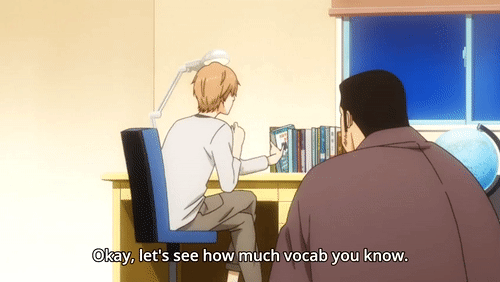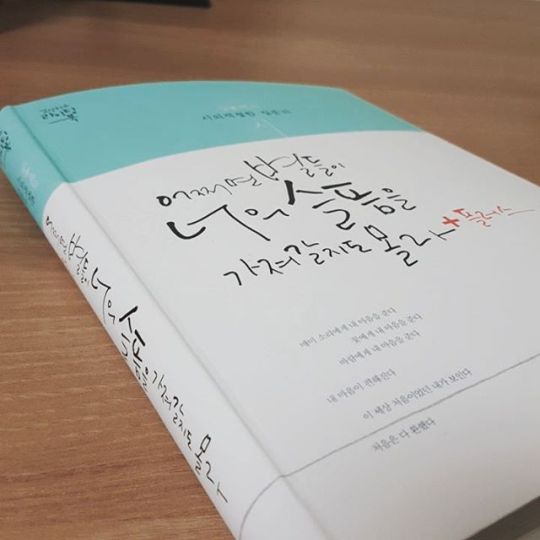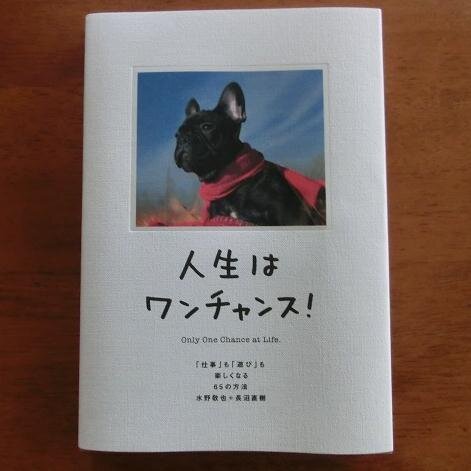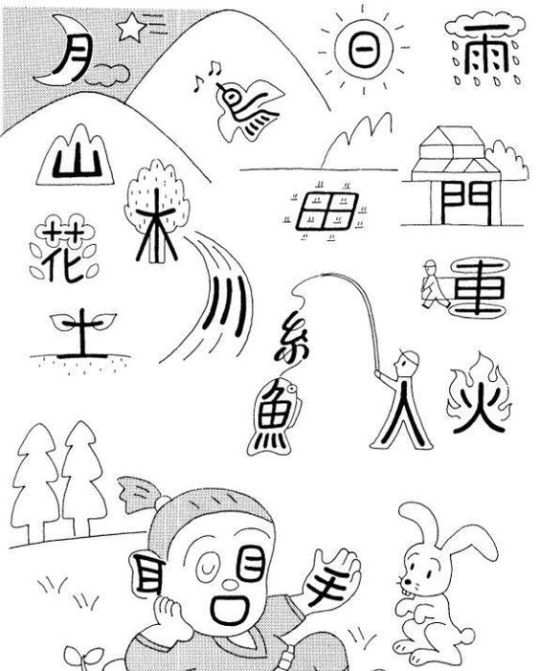Text
Japanese learning tip for the new year: I highly recommend learning with a native Japanese speaker. As someone who is self-taught in Japanese, I used to just study with textbooks and online notes. While my Japanese was understandable, I was often told it sounded stiff and academic. It wasn't until I started regularly practicing with native speakers that people commented on how much more natural my Japanese sounded. So if you have the time and some extra pocket money, invest those extra hours spent at home this year in lessons with native speakers! My favorite tutoring site is italki.com, and my favorite teacher there is Elly, a native speaker from Kumamoto with years of experience teaching foreign residents in Japan. (All of the teachers on italki are wonderful, but please especially check out Elly because she's awesome!!!!)
Please leave me any comments or messages if you have questions about online Japanese learning!


34 notes
·
View notes
Note
Hi! I'm a beginner in japanese, and I'd like to know your opinion about studying with online courses. I'm thinking about using japanesepod101 but now I'm not really sure if it's the best choice... And japanese textbooks are really expensive in my country (no amazon here), so I'm searching other ways to study. Tysm for everything 💫✨
Hi, Anon! Thanks for the question. I totally understand not wanting to pay for textbooks (I’ve rarely used textbooks during my 10 years of studying). They’re so expensive! While I’ve never used japanesepod101 and therefore don’t have an opinion on it, what I think matters the most is pairing what you’re studying with real-life experiences. So the material in textbooks, japanesepod101, duolingo, and whatever other resources you might use are absolutely valuable, but what will give you that extra motivation and help you contextualize what you’re studying is authentic material.
While watching a full movie without subtitles is difficult at the beginner stage, you can start with listening to songs or short anime (little kids shows aren’t that necessary because you can find some simple dialogue in slice of life anime, too, depending on the content), trying to pick out the words or phrases you know. This is excellent for authentic input.
I also highly recommend trying to have conversations with native speakers right away. When I was a beginner, I used the Japanese virtual world Ameba Pigg to play games with other online users and have simple conversations. I struggled a lot and was slow to respond, having to go back to my dictionary every time I wanted to say something, but it got me communicating right away. In addition to Japanese sites, there are also great language exchange sites and apps like italki.com or HelloTalk where you can message or call native speakers.
Sorry for the long response! To make my answer more concise, I think that free study materials for Japanese are excellent, but they become more excellent when used alongside authentic attempts to communicate in the language. Have fun with it, and がんばってね!
7 notes
·
View notes
Text
Apps Master post
Hey guys, this is my first -ever- master post (cause I have never made one before hehe) Just recently i resumed learning Korean (as well as other subjects) and i wanted to share some apps that would be (hopefully) helpful to you guys.
Korean
Eggbun- Chat to Learn Korean
Learn Korean- 50 Languages
Learn Korean Like a Native
Learn Korean. Speak Korean
HiNative- Learn Languages (works with other languages as well)
Hangul - Korean Alphabet
암기고래 - 말해주는 단어장! (영어,중국어 등)
Learn Korean Phrasebook
Learn Korean Grammar
Learn Korean 6000 Words
Learn Korean Words And Test
PopPopping Korean
Poppopping Korean–Conversation
Korean Dictionary & Translate
Korean Grammar Haja
Korean Alphabet Tracing
똑똑한 영단어(영어 단어 암기 & 테스트)
Korean Conversation Courses
SNU LEI – Hangeul
Learn Speak Korean Flashcards
Korean Vocab
Learn Korean
Chinese
Read Chinese, Learn Chinese
iKnow (Chinese, Japanese and English)
Learn Chinese. Speak Chinese
Learn Chinese - ChineseSkill
Learn Chinese Mandarin Words
Moki Chinese Class: For Kids (GREAT FOR BEGINNERS)
Learn Chinese Mandarin Phrases
Learn Chinese - 50 Languages
Fun Chinese Language Learning
Kids Learn Mandarin Chinese (just for fun)
Learn Chinese Mandarin Phrases
차이나탄 - 가장 쉬운 중국어(Free 단어장, 뉴스)
왕기초 중국어 – 깔아두기만 하면 중국어로 말하게 됨
Learn Chinese 6,000 Words
Learn Chinese Words Free
Learn Chinese - HelloChinese (VERY HELPFUL)
Japanese
Learn Japanese 1000 Sentences
Japanese Kanji Study
NHK Easy Japanese News
Learn Japanese. Speak Japanese
Learn Japanese - Minna NoNihongo
Learning Japanese
JA Sensei - Learn Japanese
Learn Japanese 6,000 Words
Learn Japanese Word and Test
Learn Japanese Phrasebook
Learning Japanese
Obenkyo
Anime Japanese
Kanji Study
Kanji - Read and Write
Moe Moe Japanese
French
Learn French. Speak French
French Dictionary - Offline
Learn French
Learn French Phrasebook
French English Dictionary
Learn French 6,000 Words
Learn French - Speak French
Learn French with Babbel
French Verbs
French Test
Learn French with Le Monde
Learn French for Beginners
French Grammar
Learn French
News in Slow French
French Conversation Courses
Learn French Vocabulary Free
Le Conjugueur
Oxford French Dictionary
French Interactive Readings
Learn French Easy | Le Bon Mot
French - English offline dict
iTalk French
Learn French by listening
Radios France
French conjugations
Learn French Quickly
Améliorez votre français !
Spanish
Learn Spanish with SpeakTribe
Learn Spanish
Spanish-English offline dict.
Learn Spanish - Español
Spanish Phrases
Learn Spanish Phrasebook
Spanish Dictionary - Offline
Learn Spanish with Babbel
Learn Spanish. Speak Spanish
Learn Spanish 6,000 Words
Spanish English Translator
Conjugate Spanish Verbs
Spanish Grammar
Speak Spanish Free
Spanish Conversation Courses
Learn Spanish - Speak Spanish
Endless Spanish
Learn Spanish Words Free
Learn Spanish Quickly
Spanish Newspapers
Spanish Translator
English-Spanish Dictionary
Learn Spanish Free
Learn Spanish with Lingorami
Learn Spanish - 50 languages
if you have any requests or questions, please feel free to ask/ message me :)
4K notes
·
View notes
Text
「人生はワンチャンス!」Day Four: 手のひらサイズの幸せ
手のひらサイズの幸せ (te no hira saizu no shiawase) = palm-sized happiness
首相 (shushou) = Prime Minister
徹底 (tettei) = completeness, thoroughness
政策 (seisaku) = political measures, policy
経済 (keizai) = economy, finance, business
復興 (fukkou) = revival, reconstruction
不屈 (fukutsu) = persistence, fortitude
信念 (shinnen) = faith, conviction
持ち主 (mochinushi) = owner, proprietor
激務 (gekimu) = exhausting/hard work
役人 (yakunin) = government worker
驚く (odoroku) = to be surprised
秘書 (hisho) = secretary
制する (seisuru) = to hold back, reign in, control
予算書 (yosansho) = budget form
紛争 (funsou) = dispute, trouble
兵士 (heishi) = soldier
犠牲になる (gisei ni naru) = to be sacrificed, fall victim to
遺族 (izoku) = bereaved family
謝罪 (shazai) = apology
慰め (nagusame) = comfort, consolation
身近 (midjika) = familiar, close to oneself
政治家 (seijika) = politician
国民 (kokumin) = nation, people, citizens
導ける (michibikeru) = to lead, guide
#funwithjapanese#japanese#japanese vocabulary#learn japanese#japan#日本語#日本#人生はワンチャンス!#day four#foreign languages#language learning
248 notes
·
View notes
Text
Sorry!
To those of you who might have noticed that I am not posting every day/every other day on this blog and my Korean blog, I just wanted to let you know that I am currently taking a three-week intensive learning course at my school and have had almost no free time to concentrate on languages. I will definitely try to get back in a study routine after the class ends next week!
9 notes
·
View notes
Text
「人生はワンチャンス!」Day Three: 時々、都会とサヨナラしよう
時々、都会とサヨナラしよう (tokidoki tokai to sayonara shiyou) = Sometimes, we need to say goodbye to the city. (The book’s translation is, “Escape from urban life from time to time.”)
社創業者 (shasougyousha) = the founder of a company
期間 (kikan) = period of time
別荘 (bessou) = villa
囲まれる (kakomareru) = to be surrounded
邪魔される (jama sareru) = to be bothered by
自然 (shizen) = nature
事業 (jigyou) = business
構想 (kousou) = vision, idea, conception
得る (eru) = to obtain
思い切って (omoikitte) = to dare to do something, be bold
飛び込む (tobikomu) = to dive in
新たな (aratana) = new, fresh
発見 (hakken) = discovery
思いもよらない (omoimoyoranai) = inconceivable, unexpected, unforeseen
判断 (handan) = judgment
休息 (kyuusoku) = rest, relaxation, relief
術 (jutsu) = art, means of, way
#人生はワンチャンス!#japanese#japanese vocabulary#日本語#日本#Only One Chance at Life#day three#japanese book#時々、都会とサヨナラしよう#funwithjapanese
84 notes
·
View notes
Text
「人生はワンチャンス!」Day Two: 自分らしさをなくさない
自分らしさをなくさない (jibun rashisa wo nakusanai) = Don’t lose your sense of self. (The book’s translation is, “Don’t forget who you are.”)
不動 (fudou) = immobile, steadfast
地位 (chii) = position, status
築く (kizuku) = to build, pile up, amass
孤児院 (kojiin) = orphanage
簡素な (kanzona) = simple, plain
周囲 (shuui) = environment, circumstances
丈 (take) = length, measure (e.g. skirt length)
詰める (tsumeru) = to take in, reduce, shorten, stuff in
襟元 (erimoto) = collar
蝶結び (choumusubi) = bowtie
工夫 (kufuu) = scheme, device, figuring out
さり気ない (sarigenai) = nonchalant, unconcerned
厳格な (genkakuna) = strict, severe, rigid, austere
修道女 (shuudoujo) = Catholic nun
つつも (tsutsumo) = even though, despite ...
魅力的な (mitryokutekina) = charming, fascinating, glamorous, attractive
環境 (kankyou) = environment, circumstance
喪失 (soushitsu) = loss, forfeit
哲学者 (tetsugakusha) = philosopher
勝利 (shouri) = victory, success
他人 (tanin) = another person, others
欠点 (ketten) = faults, defects, weakness
女優 (joyuu) = female actress
精神 (seishin) = mind, spirit, heart, intention
#japanese vocabulary#funwithjapanese#人生はワンチャンス!#自分らしさをなくさない#日本語#日本#japanese#japan#day two#language learning#languages
210 notes
·
View notes
Text
Reblogging this from my Korean blog as an explanation for why I’ll only be uploading 「人生はワンチャンス!」vocabulary every other day.
New Project Announcement!
Yesterday I started a new literacy project on my Japanese blog, funwithjapanese, where I am creating vocabulary lists for each page of the book 「人生はワンチャンス!」(Only One Chance at Life) that I am currently reading. My goal was to read one page of the book each day, but I recently ordered a Korean poetry book that I want to work on too. So, I have decided to alternate each day between the Japanese and Korean vocabulary lists!
First of all, I’m so sorry for not updating this blog lately. I’ve been incredibly busy with school and slacking off on my language studies. Recently, I got into the Korean drama 도깨비 (Goblin) anddddd apparently the poetry book that Eun Tak gives Kim Shin is real! It’s called “어쩌면 별들이 너의 슬픔을 가져갈지도 몰라” (Perhaps the Stars Will Take Away Your Sadness) and I haven’t gotten around to reading it yet.
Every other day, I will try to read a poem and upload key vocabulary words for it. I definitely recommend buying the book (you can find it on Amazon), but even if you don’t have the poems these will be helpful vocabulary sheets anyway!
Let’s have fun studying together!


13 notes
·
View notes
Text
「人生はワンチャンス!」Day One: 基本を制する者は世界を制する
基本を制する者は世界を制する (kihon wo sei suru mono wa sekai wo sei suru) = Those who control the basics control the world. (The book’s translation is, “It’s all about the basics.”)
Vocabulary:
芸術家 (geijutsuka) = artist
創始者 (soushisha) = originator, founder
構図 (kouzu) = composition
落書き (rakugaki) = scribbles
幼少期 (youshouki) = early childhood
絵画 (kaiga) = picture, painting
基礎 (kiso) = foundation, basis
猛練習 (mourenshuu) = hard training
薪 (maki) = firewood, kindling
越せる (koseru) = transcend
逸話 (itsuwa) = anecdote
称賛 (shousan) = praise, admiration
土台 (dodai) = foundation, basis
積み重ねる (tsumikasaneru) = pile up, accumulate
偉人 (ijin) = great person
名言 (meigen) = wise saying, famous saying
集大成 (shuutaisei) = compilation
優秀 (yuushuu) = superiority, excellence
行為 (koui) = act, deed
弟子 (deshi) = pupil, disciple, apprentice
秘訣 (hiketsu) = secret (of a trick, art form, method, etc.), key to success
平凡 (heibon) = commonplace, ordinary, mediocre
非凡 (hibon) = rare, extraordinary, unique
97 notes
·
View notes
Text
New Project Announcement!
Hi everyone! お久しぶりです。長い間何も書かなくてごめんなさい!
I have been extremely busy with school and have not had time to study Japanese on a regular basis. Fortunately I have continued to practice conversational Japanese with friends, but my reading and writing skills have gone way downhill.
Now that summer vacation has started, I decided to create a new study project for myself to hopefully improve my reading (especially kanji) and vocabulary. Last year, my professor gave me a book called 「人生はワンチャンス!」(Only One Chance at Life) by Mizuno Keiya (水野敬也) and Naganuma Naoki (長沼直樹) (>>please correct me if I’m reading their names wrong) with one-page anecdotes about how to live a better life. I will be creating a study set with key vocabulary words from each story, and hopefully I will stick with it every day! (If I don’t post for a while, seriously, feel free to pester me about it until I do.)
These vocabulary words are going to be more intermediate or advanced than what I usually post, so I apologize to the beginning learners who are following me (but these vocabulary words would still be good for you to know!)
Anyway, over the next couple of months I will narrate my progress with each page of the book and provide a short vocabulary study guide for you all. 「人生はワンチャンス!」is a super cute book (and it has puppies!), and its short stories are good to study when you don’t have a lot of time.

#人生はワンチャンス!#japanese#japanese book#japanese vocabulary#funwithjapanese#Only One Chance at Life#日本語#日本#単語
24 notes
·
View notes
Photo

快適 (kaiteki) -- comfortable, pleasant
**This is a “na” adjective**
女の人は快適なベッドで寝ています。(onna no hito ha kaiteki na beddo de neteimasu)
The woman is sleeping in a comfortable bed.
#japanese#japan#funwithjapanese#日本語#日本#快適#japanese word of the day#jwod#japanese vocabulary#japanese vocab#language learning#languages
138 notes
·
View notes
Photo

迷信深い (meishinbukai) -- superstitious
181 notes
·
View notes
Note
is there a difference between べき, はず, and the conditionals when used to mean "should"? sorry if that made no sense
As you mention conditionals, I assume you are thinking of ‘should’ in the sense of “Should you have any problems, please get in touch.”, where you can replace the ‘should’ with ‘if’.
べき isn’t be used in this way, it’s used to mean ‘should’ in the ‘I should go shopping because there is no food in the fridge.’ kind of way.
はず also isn’t used in this way. It expresses a kind of conviction that you have, “This film should be good.” A common phrase is 「そんなはずがない」or 「そんなはずない」 which is “It shouldn’t be like that.” or “That can’t be right/true.” Otherwise, はず expresses some sort of plan or expectation. “She got on the plane this morning and should arrive at 4pm this afternoon.”
If I’ve misunderstood your question, please let me know!
#japanese grammar#grammar#this is really helpful because i mix these two words up allllllllll the time#and again#sorry for not posting much lately guys ><
154 notes
·
View notes
Photo

春 (haru) -- spring
#japanese#spring#japan#春#haru#springtime#funwithjapanese#learn japanese#jwod#japanese word of the day#日本語#日本#japanese vocabulary
201 notes
·
View notes
Photo

青空 (aozora) -- blue sky
青い (aoi) is "blue" and 空 (sora) is "sky"
#japanese#funwithjapanese#japan#japanese word of the day#sky#japanese vocabulary#aozora#blue sky#あおぞら#にほんご
389 notes
·
View notes

